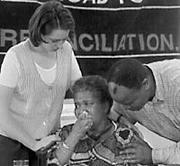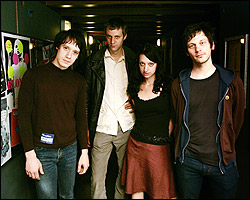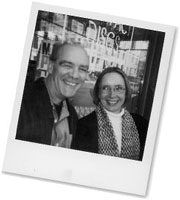PROFILING FOUR CASES brought before Archbishop Desmond Tutu’s Truth and Reconciliation Committee, this fine documentary chronicles an unprecedented attempt to bring closure and healing to a beautiful land torn apart by racism and civil war. The Sundance prize-winning film juxtaposes South Africa’s natural beauty with the complicated and ugly political reality of the post-apartheid era: police video footage of brutal slayings, trial tapes of violent murderers asking for pardon, and silently grieving mothers given the task of granting them forgiveness who suddenly burst into song.
LONG NIGHT’S JOURNEY INTO DAY
directed by Frances Reid and Deborah Hoffmann
runs June 23-29 at Varsity
In one case, an American couple meets the mother of the man who killed their daughter, Stanford student Amy Biehl, in 1993. Their unselfish dedication to supporting the principle of truth-for-absolution is overwhelming—both to the viewer and to the killer’s mother. Meetings between the two families bookend the film, to show how the Committee works at its best. But in another case, the mothers of four slain anti-apartheid activists all but refuse to even consider forgiving their sons’ confessed killer. Here, it’s striking that the killer genuinely seems repentant but doesn’t necessarily disagree with the mothers’ unwillingness to grant him amnesty.
Some 7,000 perpetrators of violence appealed to the Committee for clemency in exchange for their candid testimony, a process that the previously—and separately—Oscar-nominated filmmakers Frances Reid and Deborah Hoffmann followed between 1997 and 1999. As their real-life courtroom dramas unfold, the contrast between human empathy and raw, unrelenting pain is riveting and unforgettable. You can’t fault the family members who choose to deny amnesty, yet you can’t help being even more amazed by those cases in which reconciliation ultimately prevails.








